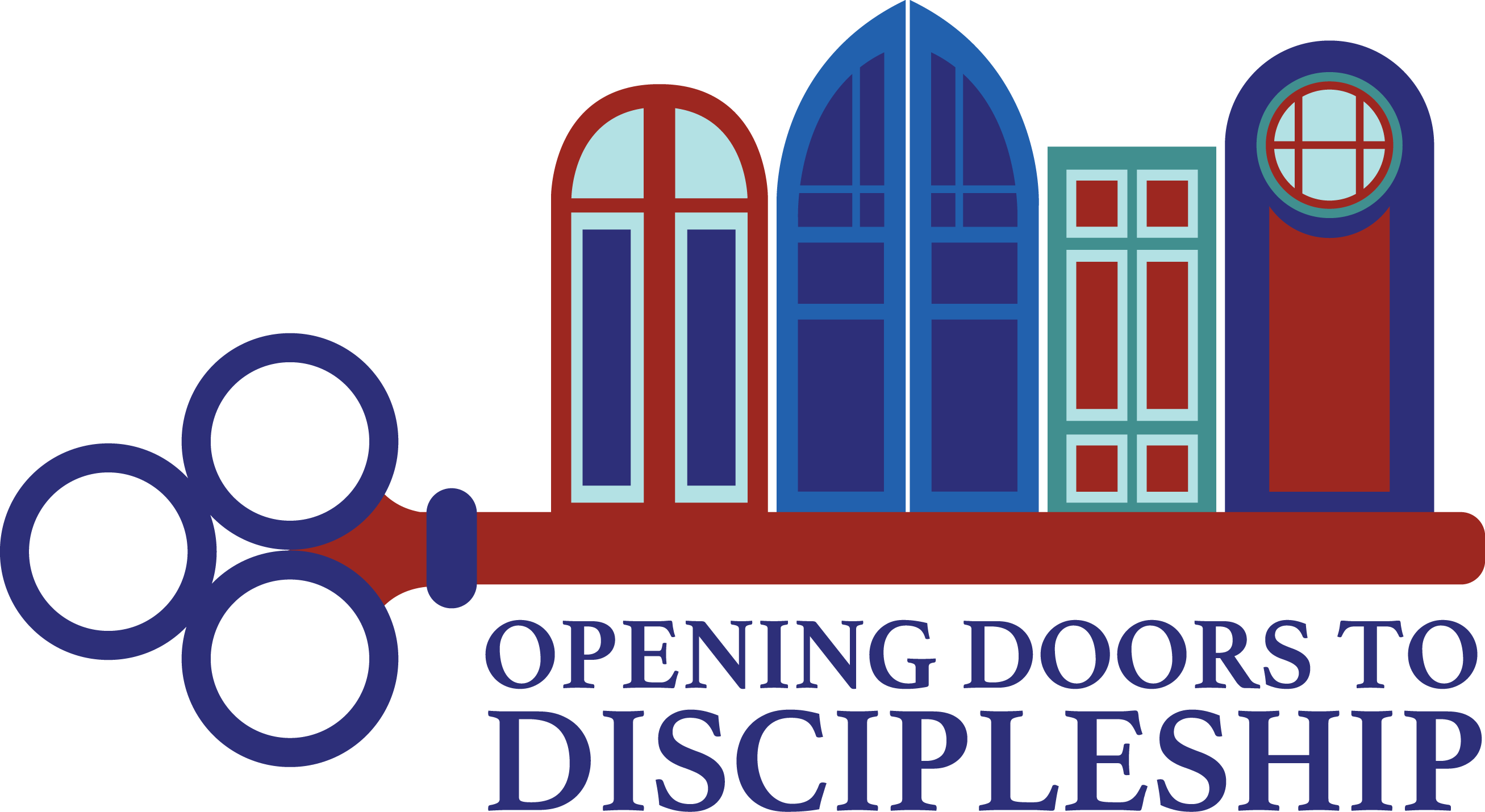Engaging this module
You are invited to explore this module by reading the content, watching the presentations and videos and responding to the suggested exercises and activities. You are encouraged to have a Bible and journaling materials nearby to take notes.
Covenant
Community
Think of a time when you said the words “I do,” “I swear,” or “I promise.” Where were you? Who was with you? Did you answer alone or as part of a group? Possible scenarios to consider are marriages, participating in a judicial setting, or church baptisms. Think about the context of this experience: What came before and what followed? Then consider – how was God involved?
Reflect on any groups or organizations beyond the church you are a part of. What requirements did you have to meet to become a member or to join? What sort of invitation was issued that made you want to join? When you joined this group, how was that recognized by the group? What ceremony or ritual took place? How does belonging to a church compare to these other groups or organizations?
GOD’S COVENANT
This presentation will invite you to reflect further on what it means to enter into a covenant with God. If you would like to read along with the presentation, please click on the button below to download the transcript.

ACTIVITIES
- Take a few moments to reflect on the following questions: Why might a sovereign God choose to relate through covenants? Why might God take the initiative to become known to these people?
- Throughout scripture, God covenants with the people during major crises. Examples are: following the flood; the beginning of Israel; the establishment of the rule of the kings; and the exile into Babylon. What crises of faith have you experienced in the past, or perhaps, are currently experiencing? Where is/was God in these crises? How did your trust in God change? What, then, might you hope for in the future?
GOD’S COVENANT IN SCRIPTURE
This presentation explores God’s covenant as it is described in scripture. If you would like to read along with the presentation, please click on the button below to download the transcript.
ACTIVITIES
- Read Exodus 20: 1-17. What are the implications of this covenant for you?
- Exodus 20:2 is the preamble to the covenant with Moses and the Israelite people. It reminded them God had been their God in the past and had freed them from slavery. Why is it important to remember and recite what God has done in the past?
- Read the Parable of the Good Samaritan in Luke 10: 25-37. How might this story expand your understanding of God’s covenant and who is included?
Each denomination articulates the covenant between the church and God differently. Read your denomination’s creeds and look for evidence of biblical covenants.
COVENANT COMMUNITY – THE CHURCH

Prayer: Gracious God, if someone were to ask me, “What is your only comfort in life and in death?”, I pray that I may faithfully answer, “That I am not my own, but belong – body and soul, in life and in death – to my faithful Savior, Jesus Christ.” And that I faithfully belong to your family and serve the covenant community to which you have called me – your church. Amen.
This presentation explores God’s covenant with the church. If you would like to read along with the presentation, please click on the button below to download the transcript.
ACTIVITIES

QUESTIONS FOR REFLECTION
- You’re part of God’s people, you’re the church too! Recall a time when the church was not welcoming. What happened?
- Look at the liturgy for Baptism or Renewal of Baptism in your tradition. How does it honor the covenant-making and covenant-keeping God? How might these liturgies help the newly Baptized feel or remember they belong to this community?
- Think of the last family reunion or big church meal you participated in. Did you know everyone there? What was the atmosphere like? In what ways might this meal compare with celebrating the Lord’s Supper or taking Communion?
- Consider linking corporate worship to your home. Every time you wash your face (or another’s face) say these words, “You are a child of God. You are loved. You belong.” Every time you sit down to eat with family and/or friends, look around and offer a silent blessing for each person. Consider these words: “Child of God, you are welcome to this table. Eat and drink and be full, nourished to serve Jesus Christ.” What are other ways your family might rehearse and reinforce the actions of worship?

PRAYER
Gracious God, you claim us in the waters of baptism and feed us with the bread of life and the cup of salvation. Grant that every adult, youth, and child may hear and believe you know them by name and have adopted them as your dearly beloved children. Help us to know both sinners and saints are welcomed and invited to sit at table with you to receive the nourishment only you can provide. Thank you for being our God. Amen.
Charge: At the end of each worship service a charge and a blessing are offered as “marching orders,” before we leave the security of the worship space and go out into the insecure world. Hear this charge for you:
Descendant of Abraham and Sarah, citizen of the covenant of grace, go out into this world that God has created, living your life as if you are a blessing to both neighborhood and nation, as if God commanded you to love one another, and as if the covenant lives on through you … for you are, God has, and it does. Amen
(adapted from Belonging to God – Catechism Resources for Worship, Geneva Press: Louisville, KY; p. 48)
COVENANT COMMUNITY IN ACTION
This video asks participants the question “how do you experience community?” Watch the video, engage in the suggested activities and then choose some of the video examples to explore more.
ACTIVITIES
- What gifts has the Holy Spirit given you? How do you use those gifts to live out your discipleship?
- Look at a recent worship bulletin from your church. Where do you see examples of our covenantal relationship with God enacted? In what ways does worship at your church offer people the opportunity to respond to God’s gift of grace and be sent out to live as disciples of Christ in the world?
- How is your church serving the world outside its doors? What difference does it make that your congregation is a covenant community in action in your particular community?
COMMUNITY IN ACTION EXAMPLES
WHAT COVENANT IS NOT
Is a covenant like a contract?
Our society does business. Money is exchanged. One party gets something, and a second party gets something else. We agree by generating written contracts with all stipulations clearly stated. Once all involved agree, the contracts are signed, possibly sealed with a notary’s stamp, and the parties go about their “business.” All is well if everyone upholds the agreed upon stipulations. When this fails, the parties often end up in court and a judge or jury decides the outcomes.
This is not how God does business. God builds a relationship with the other parties. God agrees to be a faithful God and the people agree to be faithful to God. The people often fail, but God does not go to court. God tries again and again and again. Once the covenant is established, God will never give up on the people. When broken, the covenant renewal may take time and the intervening time may be difficult for the people as they come to terms with their failure. It may take generations, but God never abandons the people and God works hard to make the relationships whole.
For people used to dealing with others on a contractual basis, often our reaction is to blame God for our failures and try abandoning God. That won’t matter. God will go to extraordinary lengths in this life and in the life beyond, to renew and restore the relationship with the covenant community.
Did God give up on the Jews and now the covenant people are only Christians?
Throughout scripture, God first called the Jews as the chosen people and created a covenant community. God broadened the covenant umbrella by calling the Gentiles as chosen people and more covenant communities, now called churches, were created. However, once people are chosen, they continue to be chosen.
To think that Christians displace the Jews as God’s chosen people is called “supersessionism” or “replacement theology.” Those who believe this have committed several heinous acts against the Jews in the name of Jesus Christ (who was himself a Jew). The Christian Bible contains the Hebrew Scriptures, too. The Old Testament and the New Testament form a continual story of God’s relationships with people. The Christian Church has not discarded the Old Testament.
Theologian Shirley Guthrie explains it this way:
Nor must we forget that according to the apostle Paul in Romans 9-11 the chosen people of God are still first of all the people of Israel. Both Israel and the church are called in their different ways to be a “light to the nations,” to discern and participate in God’s ongoing self-revelation. … we must not forget that God has an ongoing story with Israel too and that to the extent we forget or reject the Jews, to that extent we close our eyes and ears to the self-revelation of our own God, the God of Jesus Christ who is also the God of Abraham Isaac and Jacob. (pg. 65)
Is God calling other people to be under the covenant umbrella? Could God be calling others who are not Jews or Christians? That is up to God. Our God is a big God, and we are not God. The choice is not ours to make.
If we belong to the chosen people and a covenant community, is there anything else we need to do?
Yes. Being a child of God is a privilege, but with that comes responsibility. We are never chosen without work to do. We become missionaries whether we leave our homes or not. Age or economics have nothing to do with our being chosen. God seems to choose the least expected and we, in turn, are called to serve the widows and orphans and the aliens in our midst. Jesus even told us to love our enemies! Being part of a covenant community is not easy work, but it is wonderful work to serve God in Jesus’ name with the help of the Holy Spirit.
Why are there so many denominations and churches?
God has called many people and while there were not multiple denominations at the beginning, there were many different churches who could not get along together. How we think about God (Theology), Jesus (Christology) and the Holy Spirit (Pneumatology) has led to many different conclusions about the Church (Ecclesiology). Different thinking has led to different ways of governing the church and many denominations. No one church or denomination has all the truth, and all have work to do to share the good news of Jesus Christ. Our goal is to be the best-informed Christians we can be because our thinking shapes our living and being and doing. We owe God our best thinking and offer our best service.

ACTIVITY
Now that you have discovered a little more about what it means to be in relationship with a covenant making and covenant keeping God, consider the following scenario. Our Reformed Theology guides our decision making in practical matters such as this one.
Consider this scenario: A young child in your church is sitting with her parents in worship. Plates of bread and cups of juice are passed through the pews, but when her parents receive them, they take bread and juice for themselves and pass the trays over her head. After worship, she asks her parents why she couldn’t have any bread and juice during church today. The parents make an appointment to come in and speak with you to discuss how they should handle this situation.
-
- Talk with your pastor or research what your denomination’s beliefs and practices are about including children in the sacrament of the Lord’s Supper.
- How does a reformed understanding of God’s covenantal relationship with us inform your denomination’s practice?
- What have you learned about covenants that you could use to help this child’s parents talk to her about participating in communion?
CLOSING
This Is the Church
Sarah Raymond Cunningham, author
Ariel Landry, illustrator
Beaming Books: Minneapolis, MN, 2020
There’s a little rhyme that children say, a song they sing sometimes when they play.
This rhyme is about God’s family.
To do it, just move your hands like me.
Here is the church, here is the steeple, open the doors and see all the people
What a great rhyme! Isn’t it neat!
But wait – this story’s not yet complete!
There’s more to the church than just those two lines. To learn about God’s family, let’s add to this rhyme!
Some churches are so big and wide, ten thousand people can fit inside!
Other churches are really quite small.
They fit just a few people, and that is all!
Some people have church right where they are, right in their houses. That’s not very far!
And not all churches have roofs and floors.
Some don’t have steeples, some don’t have doors.
Some people have church under the stars, and God comes and meets them right where they are.
And in places where it’s not safe to be found, some people even have church underground!
And church isn’t something that stands still, you know. The church follows God’s people wherever they go!
The church moves in buses, planes, and cars. To share God’s love, the church has gone far.
The church works among the sick, hungry and poor,
with people in need wherever they are.
It’s gone to cities, it’s gone to towns, to school and to work – the church gets around!
But how does this work? How can this be?
Can a church really move like you and me?
That’s the secret! It certainly can!
Church moves through your feet, it works through your hands.
The people ARE the church, don’t you see? Church is a word for God’s family.
‘Cause Jesus said, “Where there are two or three … who gather in my name, that’s where I’ll be.”
So let’s go back to the old rhyme now.
Get your hands ready, we’ll show you how.
Here is a building, it may have a steeple.
But where is the church?
The church is the people!
On this day, the church welcomes you.
You’re part of God’s people, you’re the church too!
